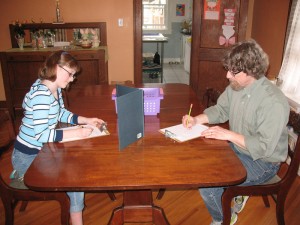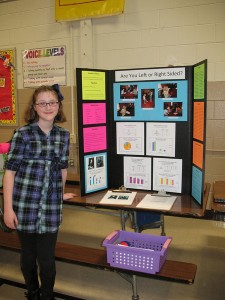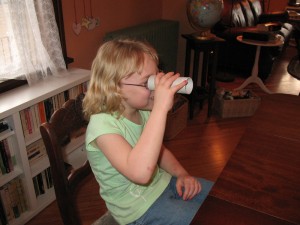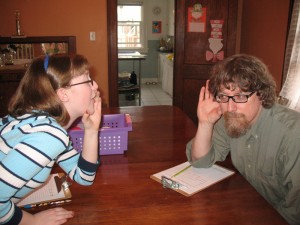The great poet and critic T. S. Eliot once wrote “April is the cruelest month.” I’m unsure what he had in mind exactly. But it quite possibly could have been an elementary school science fair.
As a professional educator, former biology major, and avowed science geek, I admit the following with considerable guilt and associated feelings of hypocrisy: I am so, so glad that my daughter’s science fair project is done.

Moreover, I fervently hope that no other take-home project of similar magnitude is on the horizon for either of our kids the remainder of the school year. Because if there is, either my wife or I — or possibly even both of us — surely will perish from educational anxiety and physical exhaustion.
(Yes, I’m sure there are many parents out there who cook delicious and healthy meals five nights a week, maintain their homes in a clean and well-decorated state, get to sleep by 10pm each night, and have diligent children who complete their science fair projects during daylight hours on a single weekend. I’m also certain that I truly despise such people.)

These science fair undertakings aren’t for academic wimps. At Eisenhower Academy here in Joliet, each kid must research a topic, write a formal paper, design an experiment, assemble materials for their procedure, collect and analyze data, and present their results on a colorful three-panel poster complete with typed text, pictures, data tables, graphs, and a bibliography. Oh, yes — and give an oral report, too.
That’s a lot of work for ten-year-olds, most of whom would rather be climbing a tree or yelling loudly during their precious after-school time, instead of toiling in the service of science.
We adults are in on the fun, too, for there is no way most kids can pull off such an involved and complex research project on their own. Consequently, parental help is guided and encouraged by Eisenhower’s teachers, who helpfully provide research guides, assignment checklists, grading rubrics, sample data graphs — even a required parent-student orientation session two months before the final project is due.

This means that parents have to navigate the tricky line between not providing enough help and doing too much of the project ourselves. Somewhere between these two extremes is a demilitarized zone of Appropriate Parental Assistance — and trying to stay in that zone without going crazy may well be one of the key science fair learning outcomes for each family.
So am I sorry that my older daughter had to do a science project this year here in Joliet’s District 86?
Hmm. No, I guess I’m not, when you really get down to it. Despite all the work involved and all the stress it can create, the project is a good thing on the whole.

I know this because of what my daughter said to me over breakfast the day before her poster was due. We had been working late the night before, importing our data tables and graphs from an Excel spreadsheet into a Word document for final printing (yes, fifth graders do such things these days), and as she ate her food before catching the bus, I asked her if she felt the science fair project was worthwhile.
“Oh, sure!” she enthused, between giant mouthfuls of noisy cereal. “My topic is awesome. And we learn how to design an experiment, and collect data, and make cool graphs. You know, Dad, the jobs of the future will be STEM-related, so the more science we get early on, the better.”
My jaw fell open and I spilled coffee on my shoe. She’s invoking STEM education and career development in breakfast conversation now? (That’s Science, Technology, Engineering, and Math for those unfamiliar with the acronym.)
“Besides,” she continued after noticing my stunned silence, “doing the experiment is super fun!” (Munch, munch, munch.) “Hey, these Atomic Crunchers are good. Can we get a bigger box next week?”
After that job you did on your science fair project, kid? You bet.
This is an expanded version of my monthly op-ed column for the Joliet Herald-News that will appear later this month.
